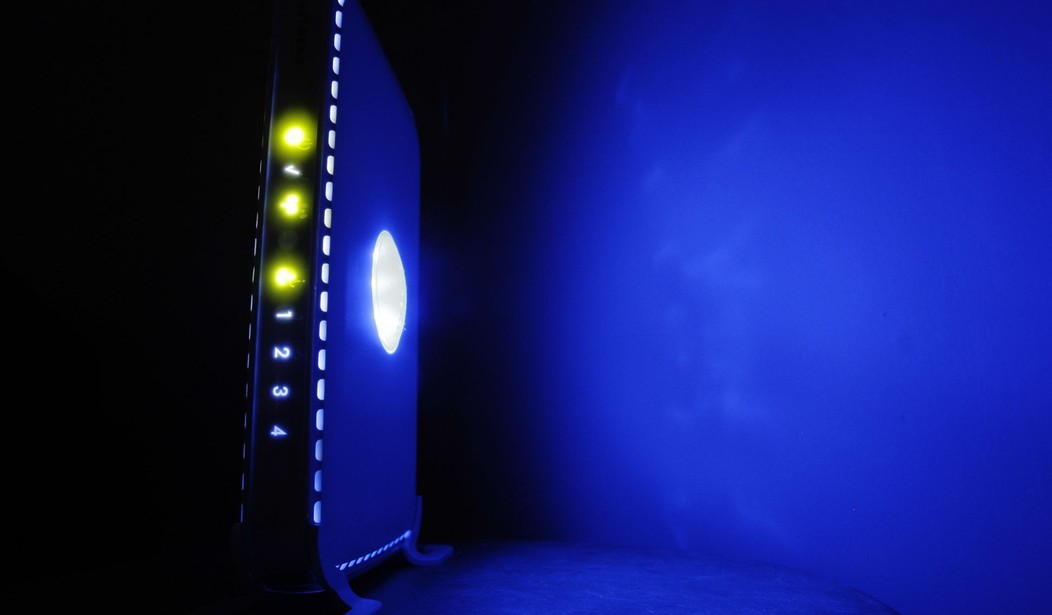The U.S. International Trade Commission (ITC) rarely, if ever, comes up in normal, casual conversation. However, everyone is greatly impacted by the decisions made by the tribunal. A current case before the ITC, for instance, could make it a lot more expensive to connect to the Internet and make it harder for people in rural areas to connect at all.
The controversy revolves around the manufacture of Wi-Fi routers. Routers are the devices that connect a computer to the Internet. You have probably seen them tucked behind the television or desk with blinking green lights. A person or household needs a router to do anything on the Internet. They are therefore indispensable for consumers, businesses, students – anyone who needs access to the Internet for their work, their play, or their studies. They are also the centerpiece of a battle that is now being waged at the ITC to limit choice and hike prices.
TP-Link is a successful company based in Singapore that sells nearly 60 percent of the Wi-Fi routers in the United States. The company has gradually taken sales away from the previous market leader Netgear by selling quality routers at lower prices. Both companies manufacture their routers overseas and import them for sale in the United States, TP-Link from Vietnam and Netgear from China. Unable to compete in the marketplace, Netgear turned to legal action to block TP-Link from selling its lower-priced routers to U.S. consumers.
Specifically, Netgear filed suit in court and at the ITC arguing that a patent it bought from another entity gives it the ability to block any other company from selling routers in the United States. A judge at the ITC agreed with Netgear’s grossly overbroad interpretation of its patent and on May 30 recommended that the Commission block TP-Link from importing any of its routers to sell in the United States. It is now up to the full Commission to review that judge’s decision and correct that interpretation to allow competition in the U.S. router marketplace.
Recommended
The need for corrective action at the full Commission is all the more important because the patent Netgear is relying on is a special type of patent – a “standard essential” patent – that Netgear is required to license to anyone who wants to do so, including competitors like TP-Link. A “standard essential” patent is in essence a patent on technology that any company operating in a marketplace absolutely must use in order to compete in the marketplace. Because “standard essential” patents give their owners so much market power – the ability to block competitors from accessing the technology they need to compete at all – the law requires standard essential patent owners to license them to any and all comers at a fair and reasonable price.
Netgear, however, has so far refused any of TP-Link’s offers to license the patent. And worse, the ITC judge’s decision puts all other Wi-Fi router sellers in the United States in jeopardy of being sued by Netgear. This means that of Netgear’s competitors – not just TP-Link – can sell Wi-Fi routers in the United States only to the extent that Netgear allows them to do so. And that will result in higher prices and limited availability of routers for U.S. consumers. If the Commission allows this grossly overbroad interpretation of Netgear’s patent to stand, the President has sixty days to decide whether to allow the Commission’s decision to block TP-Link’s imports to go into effect, or whether to overturn that decision because the American public’s interest in competition in the Wi-Fi router marketplace in the United States demands that TP-Link continue to be allowed to import and sell its routers to U.S. consumers.
Banning TP-Link’s routers would allow Netgear to hike its prices even higher without fear of competition or market share loss. Some consumers won’t be able to afford the new higher priced routers and will be denied access to the Internet as a result. The decision affects not only TP-Link, as the routers are sold at Best Buy, Costco, Staples, and other well-known brick and mortar stores which will have empty shelves if they are denied TP-Link’s popular products. Both consumers and retailers will be impacted by a ban on TP-Link’s routers.
Competition is the essence of our free market system. Competition leads to innovation, lower prices and more consumer choice – all good things. Luckily, the bureaucrats on the Commission in Washington, D.C. still have an opportunity to correct the decision. Washington seldom cares enough about the impact of their actions on rural or disadvantaged consumers, yet they are the ones who are the subject of disproportionate impacts when prices for services increase. The Administration should not allow protectionism and cronyism to ban a competitively priced product that provides many Americans with the ability to access the Internet at affordable prices.
Peter Mihalick is former legislative director and counsel to former Reps. Barbara Comstock, Virginia Republican, and Rodney Blum, Iowa Republican.

























Join the conversation as a VIP Member